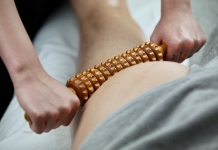Commissions: Motivator or Divider?

When that walk-in client appears at the door, you may hear your staff say
‘I'll take it' or ‘I'm going on my break now shortly'. What exactly causes this divide? COMMISSION!
A commission structure, while more common pre-recession, is often used by salons today to help boost revenue, increase sales, maximise staff utility and ultimately get more bums on seats. But before considering a commission structure for your business, you should first establish if it is profitable for your business. For example, a staff member should bring in three times their wage to cover business overheads.
A typical structure would be 5% to 10%, and in some cases, up to 25%. Some structures reward treatment and products, while others reward one or the other. Whatever the structure may be, the aim and objective are the same.
Commission structures are meant to increase profit margins, yet too often they come at the expense of both the client and the harmony of the team. Moreover, frequently they have the opposite effect. How many times have you heard ‘I am so fed up with high-pressure sales' or how many times have YOU walked out of a shop as all the sales assistant wanted to do was make a sale?
The magic potion for increasing sales is in just one word: trust. When there is trust, they ask you what they need, no selling required. I have always maintained you do not need to sell; you only need to offer what the client was looking for: a solution to their problem. After all, the client was already sold when they entered your establishment. After that, they only need solutions to their problem.
Over my nearly two decades in the industry, I have witnessed the negative effects of commission structures. Commission structures have driven a wedge between therapists, and caused friction and tension between so-called friends. Therapists have pushed unnecessary and even incorrect products on clients with the aim to reach their target by the end of the week. I once worked in a salon where the proprietor insisted that every client must leave with a bag of two to three products. She said to me, and
I quote: ‘if we don't have what they need in stock, sell them something else and when they come back again, sell them the right products
to fix up their skin'. Needless to say, I handed in my notice soon after.
You may be sitting there reading this, thinking this sour puss was simply not a good retailer. Au contraire! I have been rewarded for being a top seller by previous employers over the years, and Zest, my skin clinic, has attained top-selling status with several brands. But in the past I have witnessed – and suffered – the division of teams as a result of commission and competition. The comradery dropped, and divisions were apparent. The ‘go team' spirit we once had became a thing of the past.
Many reading this may say, ‘not our team'. We all want to have the best team, who pull together and work as a unit from open to close. I genuinely feel a team pulls together when they operate as just that: a team, rather than an individual. Commission structures may increase profit margins but at the expense of both the client and the harmony of the team.
With this in mind, attempts have been made where group targets are set. The team pulls together and boosts revenue with overall clinic targets being the goal for all. Sounds great, doesn't it? Until the whole team is scurrying around helping that one therapist who always holds everyone back. This does not go unnoticed, and soon she becomes a target herself to her colleagues, who feel she is less deserving of what they are rewarded with. Again, the team is divided, causing friction and damage to the working environment.
Instead, I would promote training for those who lag behind, and team building or social events to build relationships, with monthly or quarterly
appraisals to bring staff aware of their strengths and areas in need of development. Remember, the most important factor in a successful clinic
is not the sales target but the client. Get that ‘trust' right, and strong sales figures are just the byproduct of that trust.
Emma Ryall is the proprietor of Aesthetic Training Academy Ireland (ATAI) and Zest Skin Clinic located in Swords.
Phone 01 890 2441 (Zest) and 01 524 1511 (ATAI)





